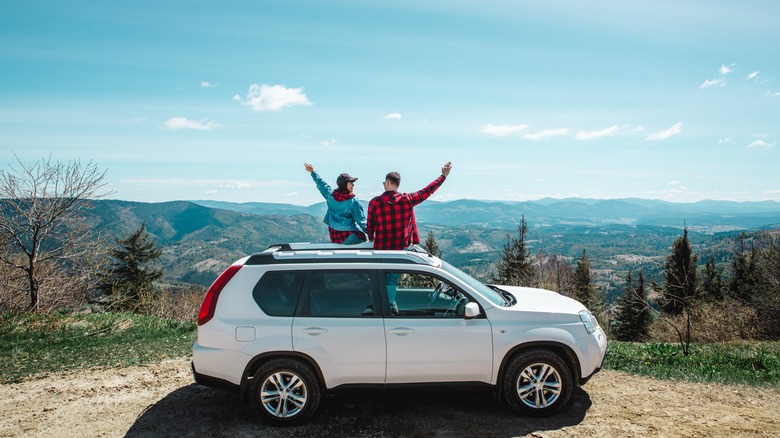The One Thing To Remember When Budgeting For Your Road Trip
Most people cannot plan a vacation without checking the bank first. Of course, some domestic and international destinations are more budget-friendly than others, but transportation, lodging, activities, and even emergencies (like a flat tire or dangerous weather) can still add up. This is why we see so many articles and videos about budget travel. When wanderlust strikes, you'll not only want to be prepared for your trip, but also make it as guilt-free as possible.
When drawing up a budget for a road trip, you will naturally take into account gas money, possible car maintenance, route planning, admission costs for attractions, and more. However, it is important to have some financial wiggle room. This means you should plan out how much money you'll need, but then buffer your budget with a little extra money when you're out on the road. Staying on budget during a vacation is paramount for most travelers, but sometimes, it's just not possible.
Preparing to go over budget is a formidable precaution
Travel blogger Amanda, the globe-trekker behind A Dangerous Business travel blog, sticks to an over-budget precaution. "My sister and I decided we would each leave Ohio with $1,500 (a total of $3,000 between us for our three-week trip), but I made sure to bring about $500 extra; and we did end up tapping into that near the end of our trip. Even if personal finance isn't your thing, work out a budget — and then add to it," she explained.
When planning a trip, unexpected costs can come up no matter how well you set up your budget. When bringing extra money along on your road trip, think of it like a rainy-day fund. If you lose an important item along the way or the lodging that you had planned falls through, going over budget to book a new hotel might be a better option than sleeping in your car.

